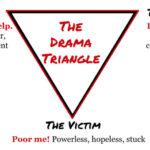
Churches as sovereign nations: bound by truth, free in custom. The historical and theological lineage of the western church, particularly the Catholic church, offers a fascinating case study in the relationship between truth and tradition. Theoretically, Rome stands as a unique extension of Athens in the mythology and philosophy of the West, absorbing the Greek understanding of the Logos while holding a direct historical link to the apostles and their […] Read more »













